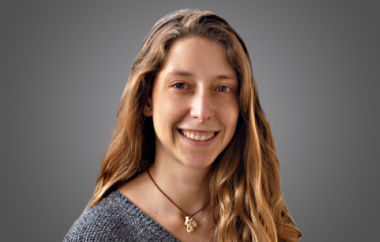PhD Student in Water Science and Technology, University of Girona, Spain
Research focus: bioelectrochemical systems for CO2 conversion into chemical building blocks at thermophilic conditions
The continuous increase of atmospheric carbon dioxide due to anthropogenic activities as a relevant cause of climate change is out of debate. Solar, wind, and hydropower are considered viable alternatives to fossil fuels for decarbonisation and will play an increasing role in the changeover to a more sustainable community. However, in order to buffer the fluctuations of these energy sources, a proper strategy for storing energy besides using batteries is required.
The approach Laura is working on is to use the electricity from renewable sources in bioelectrochemical systems when it is not needed elsewhere. In these systems bacteria convert CO2 to organic chemicals. These chemicals can be stored and used later on as raw material to obtain different products. Laura could demonstrate that this technology is not only robust enough to operate under intermittent conditions of power supply. On the contrary, these intermittent conditions have boosted the production per unit of energy consumption.
Laura uses mixed bacterial consortia from conventional wastewater treatment plants as a catalyst for the sluggish reaction of CO2 reduction. It gives an added value to the process by taking profit of waste being fully available instead of having to purchase expensive pure bacteria strains. Moreover, it turned out to enhance the resilience of the system. Laura found out that it is a robust mixed community of microorganisms with a great capability to face external changes and sustain the fluctuating operation.
Laura is doing research on an elementary level, but she is always thinking of creating knowledge for real applications in a coordinated and integrated way across sectors to achieve maximum effectiveness.
The jury especially valued Laura’s research on this very interesting approach to using surplus electricity to reduce carbon dioxide in the atmosphere by using bacteria in bioelectrochemical systems to produce organic chemicals.
Take a look at this video that briefly introduces Laura and her research:






